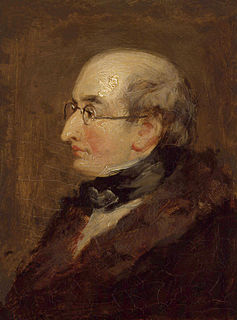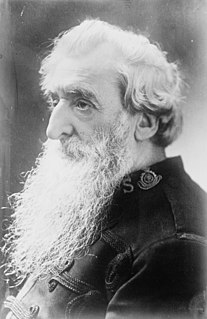A Quote by Benjamin Haydon
This is an age of intellectual sauces, of essence, of distillation. We have conclusions without deductions, abridgments of history and abridgments of science without leading facts. We have animals for literature, Cabinet Encyclopaedias, Family Libraries, Diffusion Societies, and heaven knows what else! What is all this for? Not to add knowledge to the learned, but to tell points to the ignorant, without giving them the trouble to acquire the links. Oh! it is sad work. And the result will be injurious to all classes.
Quote Topics
Related Quotes
Muscles without strength, friendship without trust, opinion without risk, change without aesthetics, age without values, food without nourishment, power without fairness, facts without rigor, degrees without erudition, militarism without fortitude, progress without civilization, complication without depth, fluency without content; these are the sins to remember.
Knowledge signifies things known. Where there are no things known, there is no knowledge. Where there are no things to be known, there can be no knowledge. We have observed that every science, that is, every branch of knowledge, is compounded of certain facts, of which our sensations furnish the evidence. Where no such evidence is supplied, we are without data; we are without first premises; and when, without these, we attempt to build up a science, we do as those who raise edifices without foundations. And what do such builders construct? Castles in the air.
Could many of our ills today have resulted from our failure to train a strong citizenry from the only source we have - the boys and girls of each community? Have they grown up to believe in politics without principle, pleasure without conscience, knowledge without effort, wealth without work, business without morality, science without humanity, worship without sacrifice?
Genius is neither learned nor acquired. It is knowing without experience. It is risking without fear of failure. It is perception without touch. It is understanding without research. It is certainty without proof. It is ability without practice. It is invention without limitations. It is imagination without boundaries. It is creativity without constraints. It is...extraordinary intelligence!
Faith is indeed intellectual; it involves an apprehension of certain things as facts; and vain is the modern effort to divorce faith from knowledge. But although faith is intellectual, it is not only intellectual. You cannot have faith without having knowledge; but you will not have faith if you have only knowledge.
According to Gandhi, the seven sins are wealth without works, pleasure without conscience, knowledge without character, commerce without morality, science without humanity, worship without sacrifice, and politics without principle. Well, Hubert Humphrey may have sinned in the eyes of God, as we all do, but according to those definitions of Gandhi's, it was Hubert Humphrey without sin.
And do you know, do you know that mankind can live without the Englishman, it can live without Germany, it can live only too well without the Russian man, it can live without science, without bread, and it only cannot live without beauty, for then there would be nothing at all to do in the world! The whole secret is here, the whole of history is here. Science itself would not stand for a minute without beauty
Without culture there can be no growth; without exertion, no acquisition; without friction, no polish; without labor, no knowledge; without action, no progress; and without conflict, no victory. The man who lies down a fool at night, hoping that he will waken wise in the morning, will rise up in the morning as he laid down in the evening.








































